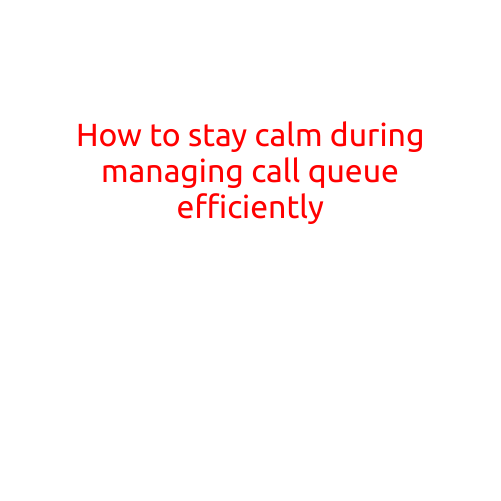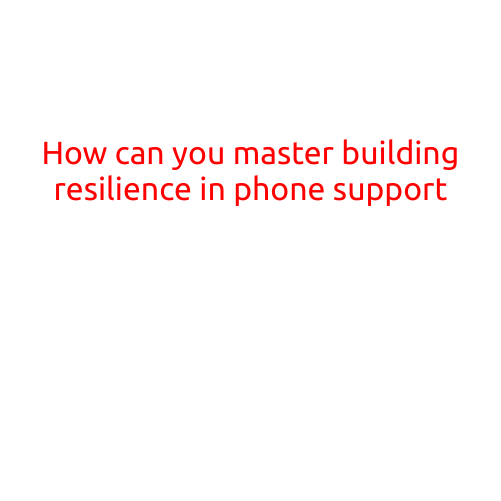
How to Adapt to Handling Difficult Phone Calls
Dealing with difficult phone calls can be a daunting task for anyone. Whether you’re a customer service representative, a salesperson, or simply a busy professional, handling uncomfortable conversations over the phone requires a unique set of skills. In this article, we’ll explore the best practices to help you adapt to handling difficult phone calls with confidence and professionalism.
Understand the Reason Behind the Call
Before picking up the phone, try to anticipate the purpose of the call. This can help you prepare mentally for the conversation and avoid feeling caught off guard. Ask yourself:
- What is the caller likely to complain about or discuss?
- Are they upset, frustrated, or angry?
- What are their goals and expectations from the call?
Stay Calm and Composed
When answering the phone, make sure to take a deep breath and stay calm. A calm demeanor can go a long way in diffusing tension and setting a positive tone for the conversation. Remember:
- Speak clearly and slowly
- Avoid interrupting or apologizing unnecessarily
- Keep your tone objective and professional
Active Listening Skills
Empathize with the caller’s concerns and show that you’re actively listening by:
- Paraphrasing what they say
- Acknowledging their emotions
- Asking clarifying questions
By doing so, you demonstrate that you value their time and care about their issue, which can help to de-escalate the situation.
Communicate Effectively
Effective communication is key to resolving difficult phone calls. Ensure:
- You understand the caller’s problem or concern
- You explain the solution or next steps clearly
- You provide updates and follow-ups as needed
Stay Focused
It’s easy to get sidetracked or emotional during a difficult phone call. To stay focused:
- Take notes to track the conversation
- Prioritize the caller’s goals and objectives
- Avoid getting defensive or reacting emotionally
Know When to Escalate
Sometimes, a difficult phone call requires escalation to a higher authority or third-party expert. Don’t hesitate to:
- Acknowledge the caller’s concerns and offer to escalate the issue
- Provide a clear explanation of the process and timeline
- Follow up with the caller to ensure their issue is resolved
Take Breaks and Practice Self-Care
Handling difficult phone calls can be emotionally draining. Don’t forget to:
- Take regular breaks to recharge
- Practice self-care techniques, such as meditation or deep breathing
- Set boundaries to maintain your mental well-being
Conclusion
Handling difficult phone calls requires a unique combination of emotional intelligence, active listening, and effective communication. By understanding the reason behind the call, staying calm and composed, and practicing active listening, you can adapt to even the most challenging conversations. Remember to stay focused, know when to escalate, and prioritize your own well-being. With practice and patience, you’ll become more confident and proficient in handling difficult phone calls.





